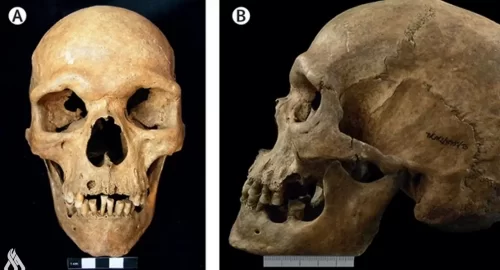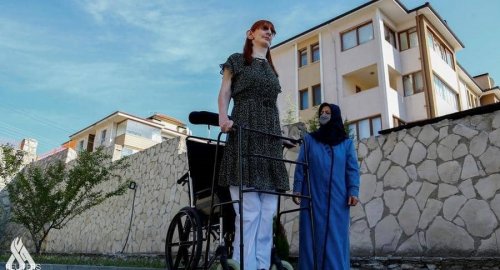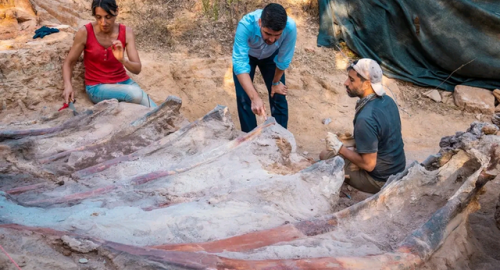
Rare Genetic Syndrome in 1,000-Year-Old Skeleton Is Oldest Case Ever Found

- 31-08-2022, 10:14
INA-
The earliest ever recorded case of the genetic condition Klinefelter Syndrome has just been discovered – in a 1,000-year-old skeleton excavated from an archeological site in Portugal.
Occurring in around one in every thousand male births, Klinefelter Syndrome is a condition where individuals are born with an extra copy of the X chromosome – resulting in an XXY combination.
While it often doesn't produce any obvious symptoms (many cases are never diagnosed), males with the condition are typically tall, with broad hips and sparse body hair. The condition has also been linked to infertility, a lower sex drive, and a slightly increased risk of type 2 diabetes.
This latest discovery will now help experts chart the prevalence of Klinefelter Syndrome over the centuries.
A multidisciplinary approach covering genetic, statistical, archaeological and anthropological data was required to reach the diagnosis.
After the retrieved skeleton was radiocarbon dated to the 11th century, the team undertook a DNA analysis. Part of that analysis involved computationally mapping fragments of X and Y chromosomes to the reference human genome.
We were immediately excited the first time we looked at the results," says evolutionary biologist João Teixeira from the Australian National University.
"However, ancient DNA is often degraded and of low quality and abundance, meaning we were initially cautious."
.While Klinefelter Syndrome was originally identified in 1942, no ancient cases have previously been documented, making this easily the earliest case on record – and offering up some clues to help experts better understand it.
The researchers are keen to emphasize how important it was to use different lines of evidence using different fields of scientific study to figure out that this skeleton did indeed come from someone with Klinefelter Syndrome.
Thanks to the genetic analysis techniques scientists now have access to, ancient DNA is being used to make all kinds of discoveries: covering animal evolution, the history of humans, the spread of disease and much more besides.
"In recent years, ancient DNA helped rewrite the history of worldwide human populations," says paleogeneticist Bastien Llamas from the University of Adelaide in Australia.
"Our study demonstrates it is now a valuable resource for biomedical research and the growing field of evolutionary medicine."
The research has been published in The Lancet.
US Central Command: We killed ISIS terrorist leader Abu Yusuf in Syria
- International
- 24/12/20
Liverpool compete with Real Madrid to sign Olympique Lyonnais star
- Security
- 24/12/19
ISC, ADX discuss Strengthening Economic Ties
- Economy
- 24/12/16
Iraq assumes presidency of Arab Investment Company’s Executive Board
- Economy
- 24/12/17












